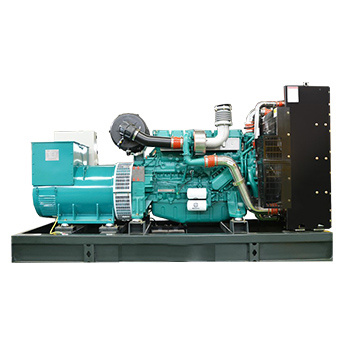Understanding Generator Sets: Essential Insights for Professionals in the Electrical Industry
Jul 12,2025
Generator sets, commonly referred to as gensets, play a pivotal role in the electrical industry, serving as reliable sources of power generation in various applications. A generator set typically consists of an engine, an alternator, and a control panel, all working in unison to convert mechanical energy into electrical energy. This transformation is essential for providing power in instances wher

Generator sets, commonly referred to as gensets, play a pivotal role in the electrical industry, serving as reliable sources of power generation in various applications. A generator set typically consists of an engine, an alternator, and a control panel, all working in unison to convert mechanical energy into electrical energy. This transformation is essential for providing power in instances where conventional electricity sources are unavailable or unreliable.
Understanding the operational principles of generator sets is crucial for professionals in the field. The engine component, often powered by diesel or natural gas, drives the alternator to produce alternating current (AC) electricity. The control panel manages the generator's operations, ensuring optimal performance and safety. It monitors parameters like voltage, frequency, and operational status, allowing for timely maintenance and troubleshooting.
One of the significant advantages of generator sets is their versatility. They are employed in numerous settings, including construction sites, hospitals, data centers, and residential areas. Their ability to provide backup power during outages makes them indispensable for maintaining continuous operations in critical facilities. Additionally, some generator sets can be used for peak shaving, thereby reducing electricity costs by supplying power during high-demand periods.
When selecting a generator set, several factors should be considered to ensure it meets specific needs effectively. The power requirements of the intended application are paramount; understanding the total wattage needed will help in choosing the appropriate size and type of genset. Furthermore, fuel efficiency is a vital consideration, as it impacts operational costs and environmental sustainability. Modern generator sets are increasingly designed with fuel-saving technologies that minimize emissions and enhance performance.
Another essential aspect is the installation and maintenance of generator sets. Proper installation by qualified professionals ensures compliance with local regulations and enhances the reliability of the system. Additionally, routine maintenance is essential to prolong the life of the equipment and prevent unexpected failures. Regular checks on oil levels, coolant systems, and battery health can significantly reduce the risk of downtime.
In conclusion, generator sets are versatile and crucial components in the electrical and power generation sector. By understanding their functionalities, applications, and selection criteria, professionals can make informed decisions that enhance operational efficiency and reliability. Whether for backup power or primary energy generation, generator sets continue to be a vital part of modern infrastructure.
Understanding the operational principles of generator sets is crucial for professionals in the field. The engine component, often powered by diesel or natural gas, drives the alternator to produce alternating current (AC) electricity. The control panel manages the generator's operations, ensuring optimal performance and safety. It monitors parameters like voltage, frequency, and operational status, allowing for timely maintenance and troubleshooting.
One of the significant advantages of generator sets is their versatility. They are employed in numerous settings, including construction sites, hospitals, data centers, and residential areas. Their ability to provide backup power during outages makes them indispensable for maintaining continuous operations in critical facilities. Additionally, some generator sets can be used for peak shaving, thereby reducing electricity costs by supplying power during high-demand periods.
When selecting a generator set, several factors should be considered to ensure it meets specific needs effectively. The power requirements of the intended application are paramount; understanding the total wattage needed will help in choosing the appropriate size and type of genset. Furthermore, fuel efficiency is a vital consideration, as it impacts operational costs and environmental sustainability. Modern generator sets are increasingly designed with fuel-saving technologies that minimize emissions and enhance performance.
Another essential aspect is the installation and maintenance of generator sets. Proper installation by qualified professionals ensures compliance with local regulations and enhances the reliability of the system. Additionally, routine maintenance is essential to prolong the life of the equipment and prevent unexpected failures. Regular checks on oil levels, coolant systems, and battery health can significantly reduce the risk of downtime.
In conclusion, generator sets are versatile and crucial components in the electrical and power generation sector. By understanding their functionalities, applications, and selection criteria, professionals can make informed decisions that enhance operational efficiency and reliability. Whether for backup power or primary energy generation, generator sets continue to be a vital part of modern infrastructure.
Related news





